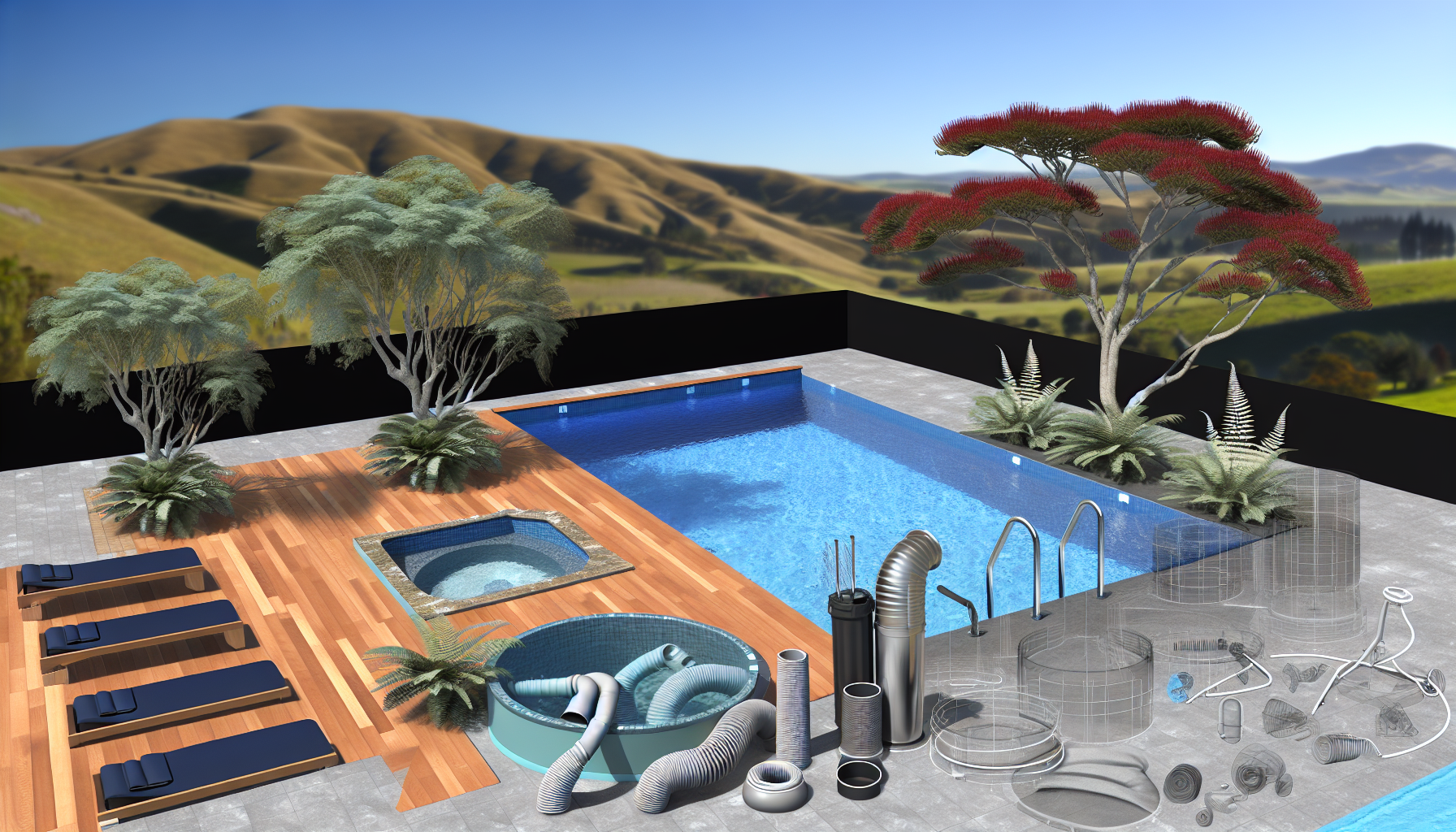The Most Expensive Part of Building a Pool in New Zealand
If you’re considering adding a swimming pool to your home in New Zealand, one of your biggest questions is likely to be: “What will cost me the most?” While pools are a fantastic addition to any backyard, they can be a significant investment. Understanding the highest costs involved will help you plan your budget effectively and avoid surprises along the way.
1. Excavation and Site Preparation
The groundwork needed before your pool can even begin to take shape is often one of the most expensive parts of the process. Excavation costs can increase significantly depending on:
- The type of soil on your property (for example, clay or rocky ground can be more difficult and costly to dig through).
- Whether there’s easy access for excavators or if smaller, more labour-intensive methods are required.
- The presence of underground services (like gas, water, or cables) that may need to be rerouted.
Auckland-based Pool Builders NZ notes that excavation costs can vary widely depending on your location and site conditions, with some difficult sites adding thousands to the budget.
2. Pool Shell and Installation
Choosing the type of pool you install plays a huge role in overall costs. The two most common options in New Zealand are:
- Fibreglass Pools – These are generally more affordable than concrete pools and come pre-manufactured. However, installation and transport costs can still push up the price.
- Concrete Pools – These are highly customisable but can be the most expensive option due to longer construction times, complex installations, and higher material costs.
Companies like Freedom Pools NZ offer fibreglass pools with installation, but even then, the size, shape, and customisation will greatly affect the final price.
3. Filtration and Water Systems
Investing in a high-quality filtration system is crucial for keeping your pool water safe and clean, but it’s also a significant cost factor. You’ll need:
- A pool pump – Runs the filtration system and circulates water.
- A filtration system – Sand, cartridge, or glass filters, each with varying costs and maintenance requirements.
- A sanitisation system – Options include chlorine, saltwater, or mineral-based systems.
Retailers like The Pool & Spa Warehouse offer a range of filtration and pump options, which can help you compare the costs for different systems.
4. Heating and Energy Costs
If you want to extend your swimming season in New Zealand’s cooler climate, pool heating is another major expense. The most common options are:
- Solar heating – More environmentally friendly and cost-effective over time but requires an upfront investment.
- Heat pumps – A popular choice for their efficiency, but electricity costs can add up.
- Gas heating – Provides instant heat but tends to be more expensive in running costs.
Hot Water Heat Pumps Ltd is a well-regarded New Zealand supplier specialising in energy-efficient pool heating solutions.
5. Coping, Tiling, and Surrounds
The area around your pool is just as important as the pool itself and can become another high-cost factor. Options include:
- Basic concrete decking – More affordable but may require sealing or resurfacing over time.
- Pavers or tiles – Provide a high-end look but can be costly depending on the materials chosen.
- Timber decking – Adds warmth and style but requires ongoing maintenance.
Suppliers like Urban Paving offer a range of high-quality poolside paving options that suit different budgets and styles.
6. Fencing and Compliance Costs
In New Zealand, all pools must comply with the Building (Pools) Amendment Act 2016, which means installing a regulatory-compliant fence. Pool fencing costs depend on:
- Material choices, such as glass, metal, or timber.
- The size and layout of your pool area.
- Automatic gates or locking systems, if required.
New Zealand companies like Glass Vice specialise in frameless glass pool fencing, which can be a stylish but costly choice.
7. Ongoing Maintenance and Running Costs
Even after the pool is built, the ongoing costs of maintaining it can add up, including:
- Chemicals and testing kits – To keep water balanced and safe.
- Electricity for pumps and heating – Can significantly impact power bills.
- Repairs and resurfacing – Depending on pool type, wear and tear can add to lifetime costs.
Investing in an automated cleaning system or a pool cover (available from Barrier Reef Pools NZ) can help reduce maintenance efforts and costs.
Final Thoughts: Is It Worth the Investment?
While the costs of building a pool in New Zealand can be significant, it’s important to weigh the value it will add to your home and lifestyle. Pools provide a fantastic source of entertainment, relaxation, and even increase property appeal. By carefully considering the biggest costs upfront, you can ensure your investment is well-planned and enjoyable for years to come.
If you’re just starting out, getting quotes from multiple New Zealand pool builders and suppliers can help you find the best option for your budget and needs. Happy swimming!


Leave a Reply